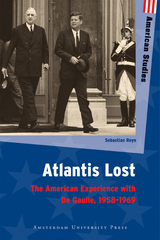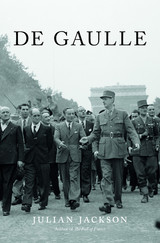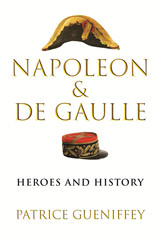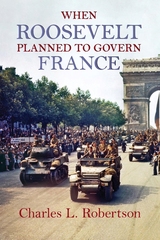
During the 1960s, Charles de Gaulle’s greatest quarrel was with the Americans. The American attitude towards this forceful European leader was, however, an equally defining part of the dispute. In this riveting study of transatlantic international relations, Sebastian Reyn traces American responses to de Gaulle’s foreign policy from 1958 to 1969, concluding that how Americans judged de Gaulle depended largely on whether their politics leaned to the left or the right.

Winner of the Duff Cooper Prize
Winner of the Elizabeth Longford Prize
A New Yorker, Financial Times, Spectator, Times, and Telegraph Book of the Year
In this definitive biography of the mythic general who refused to accept the Nazi domination of France, Julian Jackson captures Charles de Gaulle as never before. Drawing on unpublished letters, memoirs, and papers from the recently opened de Gaulle archive, he shows how this volatile visionary of staunch faith and conservative beliefs infuriated Churchill, challenged American hegemony, recognized the limitations of colonial ambitions in Algeria and Vietnam, and put a broken France back at the center of world affairs.
“With a fluent style and near-total command of existing and newly available sources…Julian Jackson has come closer than anyone before him to demystifying this conservative at war with the status quo, for whom national interests were inseparable from personal honor.”
—Richard Norton Smith, Wall Street Journal
“A sweeping-yet-concise introduction to the most brilliant, infuriating, and ineffably French of men.”
—Ross Douthat, New York Times
“Classically composed and authoritative…Jackson writes wonderful political history.”
—Adam Gopnik, New Yorker
“A remarkable book in which the man widely chosen as the Greatest Frenchman is dissected, intelligently and lucidly, then put together again in an extraordinary fair-minded, highly readable portrait. Throughout, the book tells a thrilling story.”
—Antonia Fraser, New Statesman
“Makes awesome reading, and is a tribute to the fascination of its subject, and to Jackson’s mastery of it…A triumph, and hugely readable.”
—Max Hastings, Sunday Times

An Australian Book Review Best Book of the Year
One of France’s most famous historians compares two exemplars of political and military leadership to make the unfashionable case that individuals, for better and worse, matter in history.
Historians have taught us that the past is not just a tale of heroes and wars. The anonymous millions matter and are active agents of change. But in democratizing history, we have lost track of the outsized role that individual will and charisma can play in shaping the world, especially in moments of extreme tumult. Patrice Gueniffey provides a compelling reminder in this powerful dual biography of two transformative leaders, Napoleon Bonaparte and Charles de Gaulle.
Both became national figures at times of crisis and war. They were hailed as saviors and were eager to embrace the label. They were also animated by quests for personal and national greatness, by the desire to raise France above itself and lead it on a mission to enlighten the world. Both united an embattled nation, returned it to dignity, and left a permanent political legacy—in Napoleon’s case, a form of administration and a body of civil law; in de Gaulle’s case, new political institutions. Gueniffey compares Napoleon’s and de Gaulle’s journeys to power; their methods; their ideas and writings, notably about war; and their postmortem reputations. He also contrasts their weaknesses: Napoleon’s limitless ambitions and appetite for war and de Gaulle’s capacity for cruelty, manifested most clearly in Algeria.
They were men of genuine talent and achievement, with flaws almost as pronounced as their strengths. As many nations, not least France, struggle to find their soul in a rapidly changing world, Gueniffey shows us what a difference an extraordinary leader can make.

Many French are aware of this episode and believe, on the basis of later Gaullist officials' writings, that until the last moment a military occupation of their country was imminent. This view, across the years, has helped darken relations between France and the United States. Yet few if any Americans have ever heard of this plan, and in the event, no Allied military government of France was ever established.
How and why it never came to be, and why the French still believe it almost did, is the subject of this book. Robertson recounts how the president of the most powerful nation in the world was outmaneuvered in both his earlier plans for an occupation of France and his subsequent attempts to keep General de Gaulle from "seizing" power—in a France that ultimately, despite Roosevelt's intentions and expectations, regained its place among the victorious powers under de Gaulle's leadership.
READERS
Browse our collection.
PUBLISHERS
See BiblioVault's publisher services.
STUDENT SERVICES
Files for college accessibility offices.
UChicago Accessibility Resources
home | accessibility | search | about | contact us
BiblioVault ® 2001 - 2024
The University of Chicago Press









